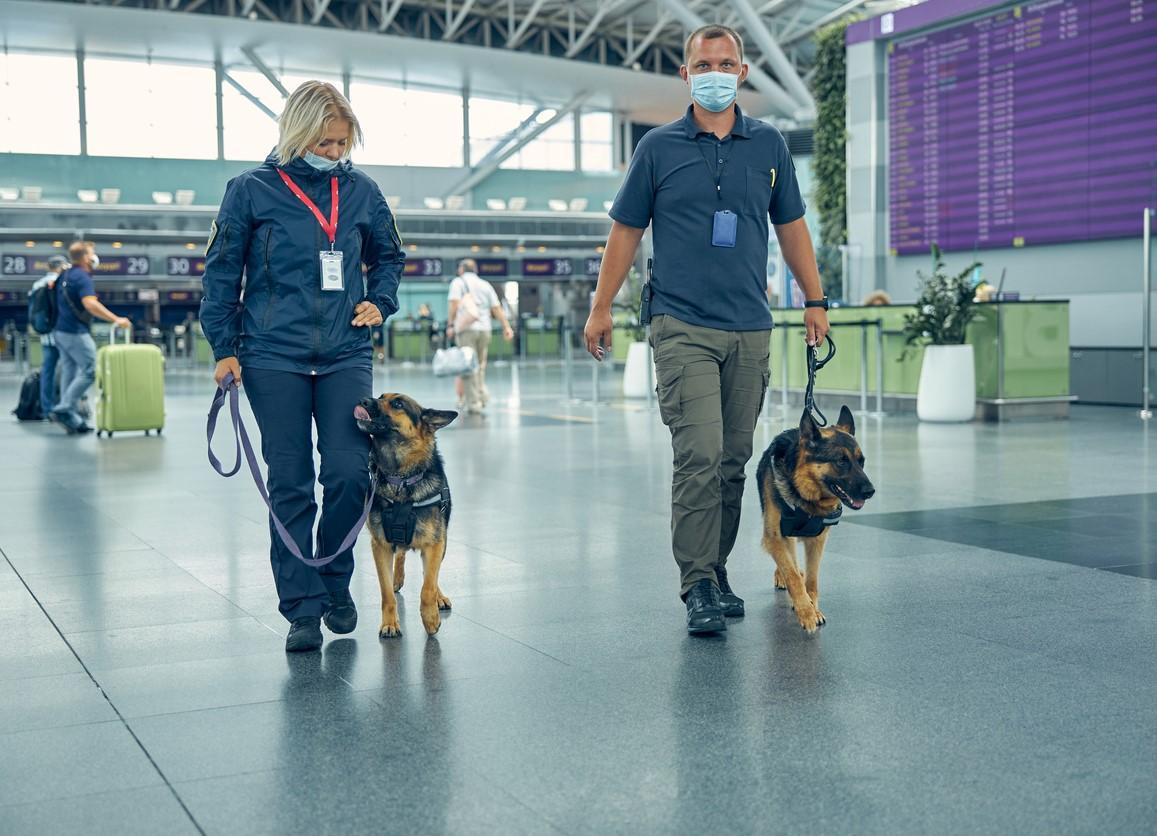A new review of literature on COVID-19–sniffing canines shows dogs outperformed or matched reverse-transcription polymerase chain reaction (RT-PCR) tests or antigen tests in detecting the novel coronavirus among humans or patient samples containing sweat, saliva, or urine.
The meta-study, published in the Journal of Osteopathic Medicine, included 29 studies in which dogs were used to detect COVID-19 using more than 31,000 samples. More than 400 scientists from 32 countries used 19 different dog breeds to conduct the studies. The number of dogs involved in the individual studies ranged from 2 to 15, with an average of 6. Labrador Retrievers and Belgian Malinois were the most commonly used dog breeds.
Field studies show good sensitivity, specificity
Of note, the studies analyzed showed that dogs could detect asymptomatic people, those who had long COVID, and new COVID variants.
Among the 29 studies were 10 scent experiments and 6 field studies conducted in the Helsinki International Airport, a Mexican health center, community pharmacies in Italy, four concerts in Germany, a metro system in Colombia, and a K-12 school in California.
In the field studies, dogs performed comparably to RT-PCR tests, with sensitivity ranging from 68.6% to 95.9 %, with 3 of the 6 ranging between 92.0% and 95.9%. Specificities ranged from 75.0% to 99.9 %, with 3 of the 6 ranging between 95.1% and 99.9 %.
We believe that scent dogs deserve their place as a serious diagnostic methodology.
And all dog-sniffing results occurred in a span of seconds to no more than 15 minutes, much faster than other forms of testing.
"We believe that scent dogs deserve their place as a serious diagnostic methodology that could be particularly useful during pandemics, potentially as part of rapid health screenings in public spaces," said study author Tommy Dickey, PhD, of the University of California, in a press release. "We are confident that scent dogs will be useful in detecting a wide variety of diseases in the future."
Dog testing grew during pandemic
Though the scientific and medical community has long touted dogs' ability to detect disease, fully using the animals for medical and disease detection wasn't widely put in place until the COVID-19 pandemic, the authors said.
In general, dogs have a superior sense of smell and boast 1,094 olfactory receptors, compared with a human’s 802, and have 125 to 300 million olfactory cells, compared with 5 to 6 million for a human.
"The effectiveness of the trained scent dog method is comparable to or in some cases superior to the real-time RT-PCR test and the RAG [rapid antigen] test," the authors concluded. "Trained scent dogs can be effectively utilized to provide quick (seconds to minutes), nonintrusive, and accurate results in public settings and thus reduce the spread of the COVID-19 virus or other viruses."




















